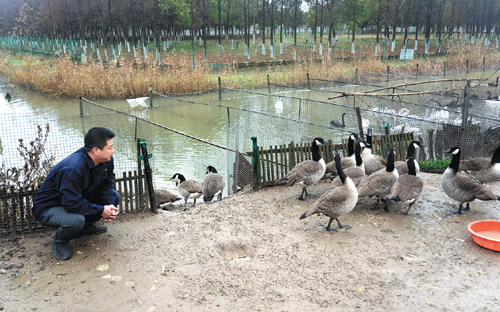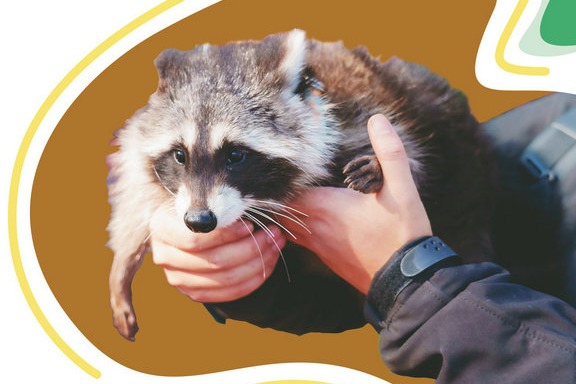Flying high with his dreams

 Yang Ji, founder of Wanyang Zhenqin, a breeding center for rare birds in Qianwei village on Chongming Island, Shanghai, raises around 1,500 avians, many of which are rare or endangered species. GAO ERQIANG/CHINA DAILY
Yang Ji, founder of Wanyang Zhenqin, a breeding center for rare birds in Qianwei village on Chongming Island, Shanghai, raises around 1,500 avians, many of which are rare or endangered species. GAO ERQIANG/CHINA DAILY
Yang Ji might not have any children, but he already has his hands full with "parental" duties.
As the founder of Wanyang Zhenqin, a breeding center for rare birds in Qianwei village on Chongming Island, the 39-year-old raises around 1,500 avians, many of which are rare species that were imported from abroad, as well as endangered ones like the hornbill, the Chinese pheasant and the Canadian cape barren goose.
According to Yang, the center has three species of birds on the national first-tier protected-animal list, and around 20 species are on the second-tier list.
Born in Shanghai in 1981, Yang studied accounting in college before becoming a civil servant, fulfilling his parents' wishes of him securing a stable job. But he only lasted a year in that role-h(huán)e was bored and simply wanted to follow his dream of working with animals.
"I've loved animals since I was a child. I raised many animals, such as goldfish, turtles and pigeons during my school years," he says.
"Raising animals was my hobby and my dream. Now, it is a dream come true."
Yang made a career switch in 2006 and started working at a chicken farm to learn the ropes about breeding birds before he opened his first breeding center in Pudong a few years later.
"The first five years, from 2006 to 2011, were very difficult for me because I had to learn things from scratch. I made many mistakes along the way, but I also learned a lot," he says. "For example, there are huge differences between raising a chicken and a swan."
He shared that the first batch of swans he bought eventually became crippled, and some even died, even though he went to great lengths to feed them good food and ensure that their pens were warm. But after consulting with experienced ornithologists, he learned that the animals simply needed to eat grass. In addition, the swans should not have been cooped up in their pens but let out to exercise in the cold water.




































